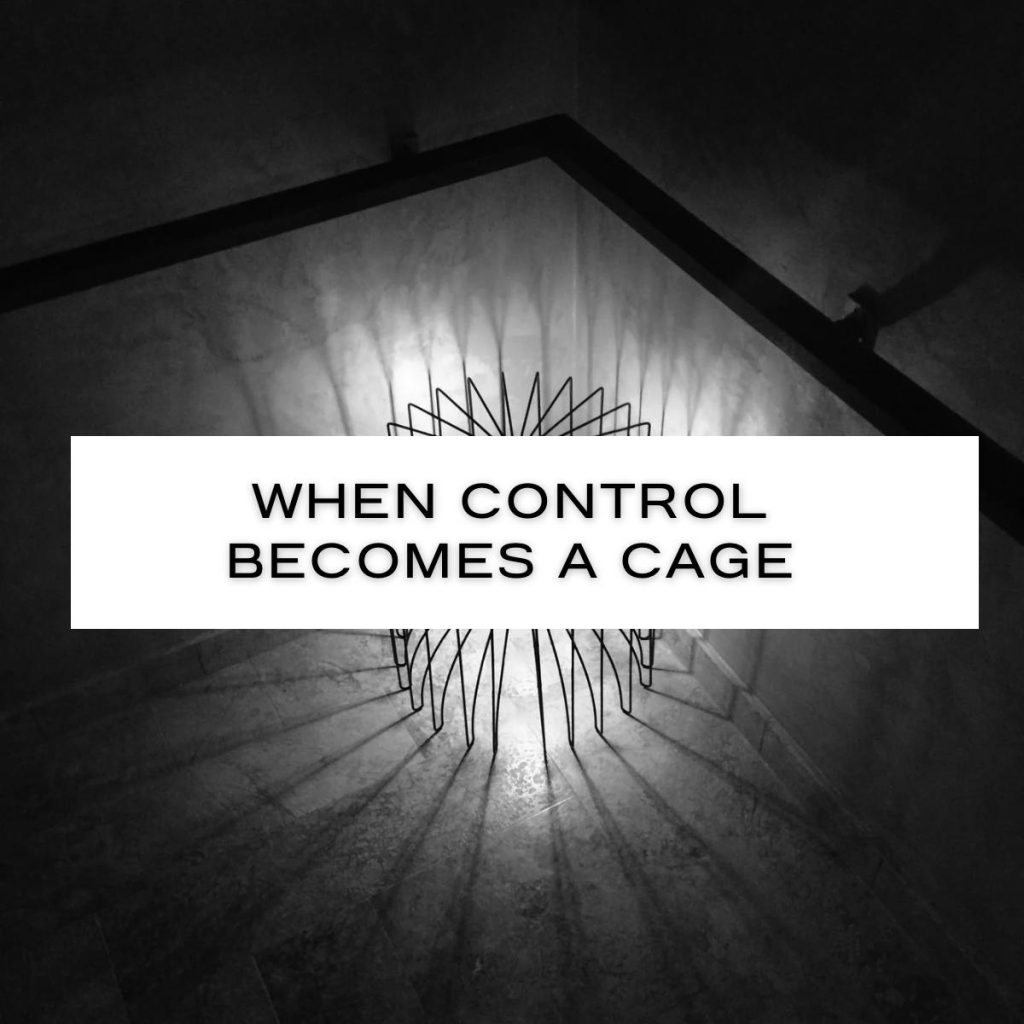You are praised for how in control you are. But what if that control is built on fear?
In law, control is currency. You manage complex matters, predict risks, and stay ahead of problems others never even see coming. It is why people trust you. It is why they give you the big cases.
And it is why you are exhausted.
Because while control is your professional superpower, it can quietly become your personal cage.
The Cost of Hyper-Responsibility
Control in legal practice is rarely just about skill; it is about vigilance. You keep track of deadlines, personalities, precedents, politics, and the hundred unseen variables that can derail a matter.
Over time, this level of constant monitoring hardwires your brain for hyper-responsibility:
- If something goes wrong, you assume it is because you did not watch closely enough.
- If someone else drops the ball, you quietly pick it up before it hits the floor.
- If you are not across every detail, you feel unsafe.
The feedback loop is seductive: your competence gets you praise, the praise reinforces the behaviour, and soon it becomes your identity.
Anxiety in Disguise
For many lawyers, “being in control” is actually a form of anxiety management. You do not feel anxious because you are in control but only because you are constantly scanning, managing, and tightening your grip.
The problem? You cannot relax without control.
- Delegation feels risky.
- Time off feels unsafe.
- Not knowing every answer feels like a threat to your credibility.
You have built a system where the only way to feel secure is to keep everything under your hand. And that is not security that is dependency on hyper-vigilance.
When the Cage Starts Closing
Here’s how control becomes a trap in legal practice:
- You stop trusting others’ competence.
Even when they prove themselves, you still check their work “just in case.” - You become the bottleneck.
Because you must oversee every step, things wait for your attention and pressure compounds. - Your body never comes off high alert.
The nervous system adapts to a baseline of tension. Calm feels unnatural, even suspicious. - The personal cost grows invisible.
Friends stop inviting you out because “you’re always busy.” Family assumes you cannot switch off. You lose the ability to just be.
The Law Rewards It
Control looks like professionalism until it starts breaking you.
- You will get the praise, but you will also get the impossible files no one else wants.
- You will be seen as dependable, but you will also be the one people rely on at 9 p.m. on a Sunday.
- You will produce excellence, but at the cost of living in a constant state of readiness.
The very habit that made you succeed becomes the habit that makes you brittle. And brittle does not survive the sustained pressure of legal work.
Loosening the Grip Without Dropping the Ball
Control does not have to be abandoned to protect your mental health, it has to be redesigned. Here is how:
- Shift from Possession to Oversight
You do not need to own every detail to ensure its quality. Move from “I must do it” to “I must ensure it gets done to standard.” This subtle shift makes delegation safer in your mind.
- Test Small Surrenders
Delegate a minor element of a file and resist the urge to check it immediately. Observe what actually happens versus what you feared would happen.
- Identify Your Non-Negotiables
Not everything needs your full control. Decide which tasks, decisions, or client interactions truly require your direct handling, and let the rest go.
- Reframe Uncertainty as Intelligence Gathering
Instead of seeing “not knowing” as failure, frame it as an opportunity to gather context before acting. This prevents automatic over-management.
The Internal Work of Letting Go
Letting go of control is not about laziness it is about trust, boundaries, and nervous system regulation.
- Trust: Building confidence in your team’s competence.
- Boundaries: Protecting your own bandwidth and recognising when “just this once” becomes the new normal.
- Nervous System Regulation: Practising techniques (like box breathing or grounding) that train your body to tolerate the discomfort of not controlling everything.
This is not quick work. If your professional identity has been built on control, loosening that grip feels like undoing the very thing that keeps you safe. But safety built on over-control is a fragile safety.
Why This Matters for Resilience
Mental toughness is not about holding the rope tighter it is about knowing when to adjust your grip. If you cannot release control without distress, your resilience is limited to the moments you can manage everything.
True resilience is the ability to function and thrive even when you cannot.
Final Thought
Control will always be part of legal practice. The law requires precision, accuracy, and foresight. But when control turns into hyper-vigilance, it stops serving you and starts running you.
You are allowed to be excellent without being omnipresent. You are allowed to trust others and still protect outcomes. You are allowed to rest without fear.
Sometimes, the bravest professional act is to loosen your grip just enough to breathe.
If you are interested in mental performance training for yourself or your legal team, contact the Professional Mind Resilience Institute at info@pmri.co.za or visit www.pmri.co.za.


